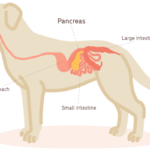Tooth decay is a common dental problem affecting millions of people worldwide. While traditional braces have been a go-to solution for correcting misaligned teeth, Invisalign has emerged as a modern, nearly invisible alternative that provides a range of benefits, including the prevention of tooth decay. But what is the advantage of using Invisalign, specifically in preventing tooth decay? Let’s explore how Invisalign can protect your teeth and enhance your oral health.
Understanding Tooth Decay
Before diving into the benefits of Invisalign, it’s important to understand what tooth decay is. Tooth decay occurs when bacteria in the mouth produce acids that attack the enamel of the teeth. This process can result in cavities, pain, infection, and even tooth loss if not treated promptly.
Tooth decay usually begins with plaque, a sticky film of bacteria that forms on the teeth when you consume foods high in sugars or carbohydrates. If not removed through proper oral hygiene practices, plaque hardens into tartar, which can further lead to gum disease and tooth decay.
Misaligned teeth, crowded or overlapping teeth, and improper bites can exacerbate the risk of tooth decay because these conditions make it harder to clean the teeth effectively. That’s where Invisalign comes into play.
What Is Invisalign?
Invisalign is a modern orthodontic treatment that uses a series of clear, custom-made aligners to straighten your teeth over time. Unlike traditional braces, which rely on metal brackets and wires, Invisalign aligners are almost invisible, making them a popular choice for both teens and adults who want a discreet way to straighten their teeth.
The aligners are made of a flexible plastic material called SmartTrack® and are designed to fit snugly over the teeth. Patients wear each set of aligners for about two weeks before switching to the next set in the series. Over time, these aligners gradually move the teeth into their desired positions.
Invisalign offers numerous advantages, especially when it comes to preventing tooth decay.
How Invisalign Prevents Tooth Decay
1. Easy to Maintain Oral Hygiene
One of the most significant advantages of Invisalign over traditional braces is that the aligners are removable. This allows for much easier cleaning of your teeth, which is essential for preventing tooth decay.
With traditional braces, food particles often get trapped around the brackets and wires, making it difficult to clean effectively even with brushing and flossing. This can lead to plaque buildup, which, in turn, can result in tooth decay and gum disease. However, with Invisalign, you can remove the aligners before eating and brush and floss as you normally would. This ensures that no food is left behind to cause decay.
By maintaining better oral hygiene, you can significantly reduce the risk of tooth decay during your orthodontic treatment.
2. Reduced Risk of Plaque and Tartar Build-up
Because Invisalign allows you to keep your teeth cleaner, there is a lower risk of plaque and tartar buildup. Plaque is a precursor to tooth decay, as the bacteria in plaque produce acids that erode the enamel. Tartar, on the other hand, is hardened plaque that can only be removed by a dental professional.
Traditional braces create nooks and crannies where plaque and tartar can easily accumulate, but Invisalign’s smooth aligners don’t provide these hiding spots for harmful bacteria. This means that with proper care, you can minimize the buildup of decay-causing substances.
3. Custom Fit for Effective Teeth Movement
Invisalign aligners are custom-made to fit your teeth perfectly. This not only ensures effective movement of your teeth into the correct positions but also minimizes irritation to your gums and teeth, unlike traditional braces, which can cause sore spots, broken brackets, or wires.
Because Invisalign provides a custom fit, it ensures that your teeth are moving in a controlled manner, reducing the risk of tooth wear and tear that can expose the dentin layer beneath the enamel. Exposed dentin is more susceptible to decay, so protecting it with properly fitted aligners is crucial.
4. Shorter Treatment Time Reduces Decay Risk
Another advantage of Invisalign is that it typically requires a shorter treatment time compared to traditional braces. While the average length of treatment with traditional braces is 18 to 24 months, many Invisalign cases can be completed in as little as 12 to 18 months.
A shorter treatment time means less risk of developing tooth decay during the treatment process. The longer your teeth are in braces, the more opportunities there are for decay to develop, especially if maintaining oral hygiene becomes a challenge. Invisalign minimizes this risk by reducing the treatment duration while still delivering effective results.
Invisalign vs. Traditional Braces: Which Is Better for Preventing Tooth Decay?
Both Invisalign and traditional braces are effective for straightening teeth, but when it comes to preventing tooth decay, Invisalign has several distinct advantages.
Aesthetics and Comfort
Invisalign is virtually invisible, making it a preferred option for individuals who are conscious about their appearance. Traditional metal braces, on the other hand, are more noticeable and can sometimes cause discomfort due to wires and brackets.
Because Invisalign is more comfortable and less intrusive, patients are more likely to stick to their oral hygiene routine, which is essential for preventing tooth decay.
Fewer Dietary Restrictions
Traditional braces often come with a long list of food restrictions to avoid damaging the brackets and wires. Sticky, crunchy, or hard foods can cause damage to the braces, leading to prolonged treatment times and even dental emergencies.
Invisalign wearers don’t face these dietary restrictions because the aligners are removed during meals. This means that you can continue enjoying your favorite foods without the risk of damaging your orthodontic appliances. Plus, being able to remove the aligners allows for a thorough cleaning of your teeth after meals, further helping to prevent tooth decay.
Convenience and Flexibility
Invisalign aligners offer flexibility and convenience that traditional braces cannot match. You can remove them when necessary, such as for special events, eating, or cleaning. This makes it easier to maintain your oral hygiene, reducing the chances of tooth decay.
Traditional braces, while effective, are fixed appliances that can make oral hygiene more challenging. The inability to remove braces during cleaning often results in increased plaque accumulation, which heightens the risk of decay.
Maintaining Your Oral Health During Invisalign Treatment
While Invisalign offers many advantages in preventing tooth decay, it’s important to note that it is not a substitute for proper oral hygiene. Here are some tips to help you maintain your oral health while using Invisalign:
Brush and Floss Regularly
Make sure to brush your teeth at least twice a day and floss daily to remove plaque and food particles that could lead to decay. Since Invisalign aligners are removable, there’s no excuse for skipping your brushing and flossing routine.
Clean Your Aligners
Your Invisalign aligners should be cleaned daily to prevent the buildup of bacteria. You can clean them using a soft toothbrush and mild soap or use a specially designed aligner cleaning solution. Avoid using hot water, as this can warp the aligners.
Stay Hydrated
Drinking water throughout the day can help rinse away food particles and bacteria from your mouth, reducing the risk of plaque buildup and decay. Avoid sugary or acidic drinks, as they can increase the chances of tooth decay.
Avoid Snacking with Aligners On
Remove your Invisalign aligners before eating or drinking anything other than water. Leaving the aligners in while snacking can trap food particles against your teeth, increasing the risk of decay.
Attend Regular Dental Checkups
Continue to see your dentist for regular checkups and cleanings during your Invisalign treatment. Your dentist can monitor your oral health and address any concerns that may arise, including early signs of tooth decay.
Conclusion: Why Choose Invisalign for Tooth Decay Prevention?
Invisalign offers a range of advantages when it comes to preventing tooth decay. From easy maintenance of oral hygiene to reducing the risk of plaque buildup and shortening treatment time, Invisalign helps you achieve a healthier, straighter smile with fewer complications. Its clear, comfortable design also ensures that you can enjoy your favorite foods and activities without the discomfort or inconvenience of traditional braces.
If you’re considering orthodontic treatment and want to protect your teeth from decay during the process, Invisalign could be the ideal solution for you. Talk to your dentist or orthodontist about whether Invisalign is the right choice for your dental health needs.
Feel free to submit more guest posts through Links Building Servcies - Best Prices. Buy Author Account / 1$ Guest Post Here























